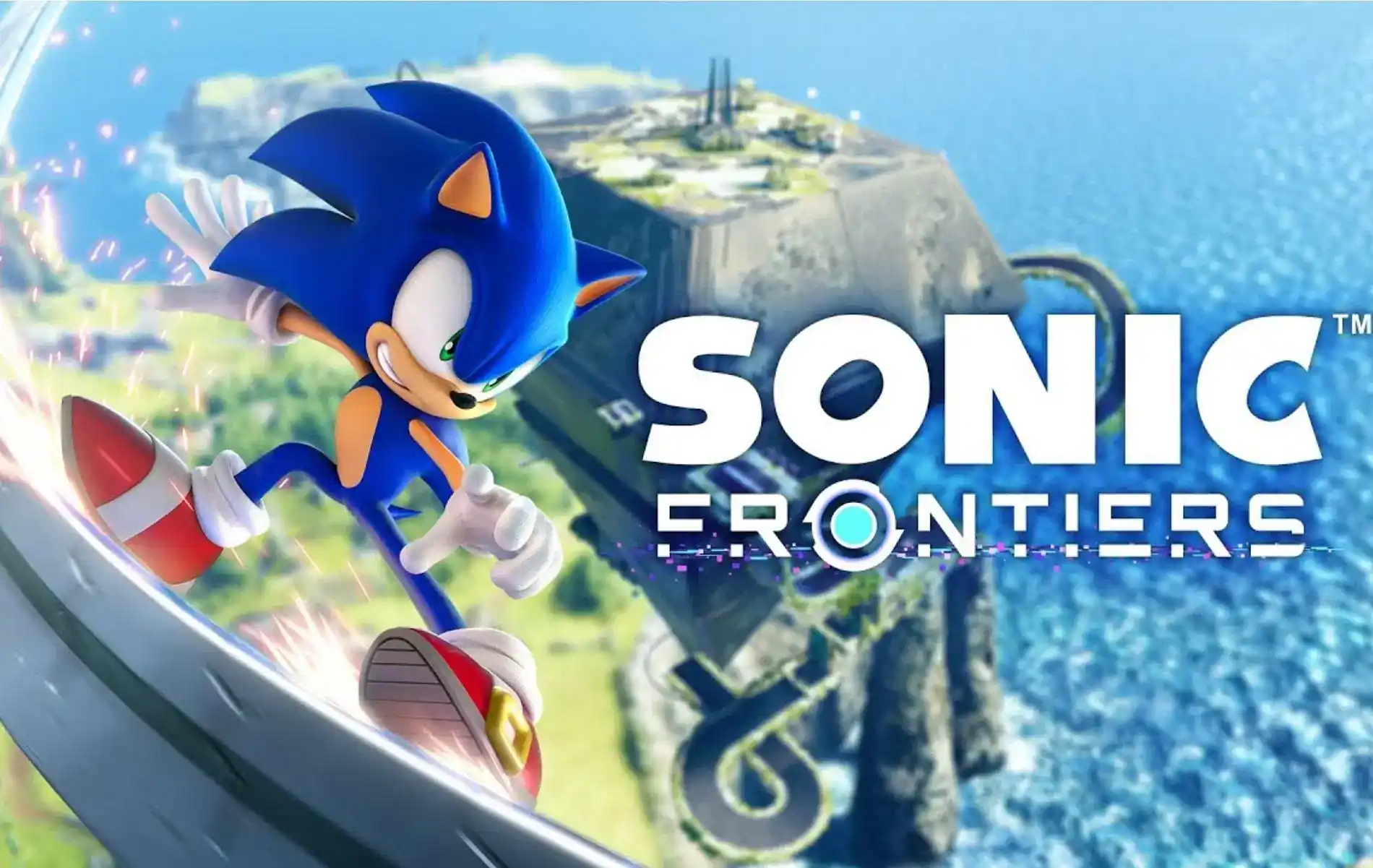Distributor provided a review copy
I wasn’t a SEGA kid. This was back in the time of the console wars when Nintendo and SEGA went to war over global audiences. Each one revving up vitriol at the other in increasingly unhinged ads and counter-ads. For a kid growing up in recession-era Finland, it only meant you had to carefully choose which console – if any – you would go for. So, at the time, the blue hedgehog lost out to the red plumber, and that was that.
Thirty years later, Sonic Frontiers attempts a kind of reinvention of the established format. It lovingly lifts elements from Breath of the Wild and other somber narratives of worlds gone by, which, in turn, mix with the manic energy of Sonic that audiences have grown to love. This combination doesn’t always work, and for the first few hours, I was utterly baffled about the whole thing. After all, Sonic is almost synonymous with happy-go-lucky speed and bright colors.
Frontiers is… not that.
For someone coming to the series with fresh eyes, you’d think that this change wouldn’t matter much, but it does. There’s an expectation of legacy, and it’s a weird experience stepping into a franchise at the cusp of a cataclysmic change like this for the first outing. For much of the game, Sonic is alone, wandering a desolate landscape as low-key piano music haunts him wherever he goes.
In between the vast open biomes are the more traditional levels, presented literally as virtual worlds from which Sonic must rescue his friends. These sections are quick, frenetic, and intensely fun. They’re dizzying examples of everything that makes Sonic, Sonic.
But they’re also completely apart from the rest of the game, which presents itself as a serious, lore-heavy title. If anything, the two halves feel like distinctly different games, neither developed for the other. And yet, despite this, as the game progresses, I would lie if I said they didn’t work together.
Exploring the worlds of Starfall Islands is still fun, no matter how you look at it. Racing and scaling the environment is suitably intense and there’s an infectious joy in outwitting enemies on the sheer power of speed alone.
Sadly, it’s here the rest of the game can’t keep up. Fighting enemies is a repetitive chore for at least the first half of the game. Platforming is weightless and prone to wonky camera issues, something that shouldn’t be a problem this many decades since the inception of the genre. There’s also a constant sense that every time one of the gameplay styles takes a step forward, be that open-world exploration or speed running, the other forcibly takes one back.
Having said that, I kept playing. I grumbled, I sighed with frustration, and I played. I collected trinkets, saved my friends, and returned to hone my times on the digital tracks. Despite my complaints. There’s something appealing about Frontiers that appeals to a basic instinct. It’s something that the Sonic franchise has always understood. Which is probably why it’s still such a household name, even after years of duds and misfires.
I spoke with a friend and colleague, who is a much bigger fan of the franchise. He loves Frontiers, even as he agrees on every point and demerit. For him, they don’t matter because it’s Sonic on a big scale with big stakes. I can understand that devotion. I have the same kind of blind love for Final Fantasy.
So who is Sonic Frontiers for? I can’t say with good conscience suggest any newcomer to dive right in expecting a coherent or instantly captivating experience. As a family game, it has too many issues that will frustrate younger players. Older fans are going to hate the plot changes and just how drastic the tonal shift feels.
And yet, I think that, in the end, each of these groups will find something they’ll absolutely love about the game. Newcomers, like myself, will find the scale and the sense of speed fascinating. Older fans will appreciate how finely tuned classic mechanisms have become. Younger fans will love the side characters, the wacky sense of fun, and just how odd everything is.
It’s not a great game. It might occasionally not even be a good one. But it’s a captivating experience that demands attention. That’s not nothing.













